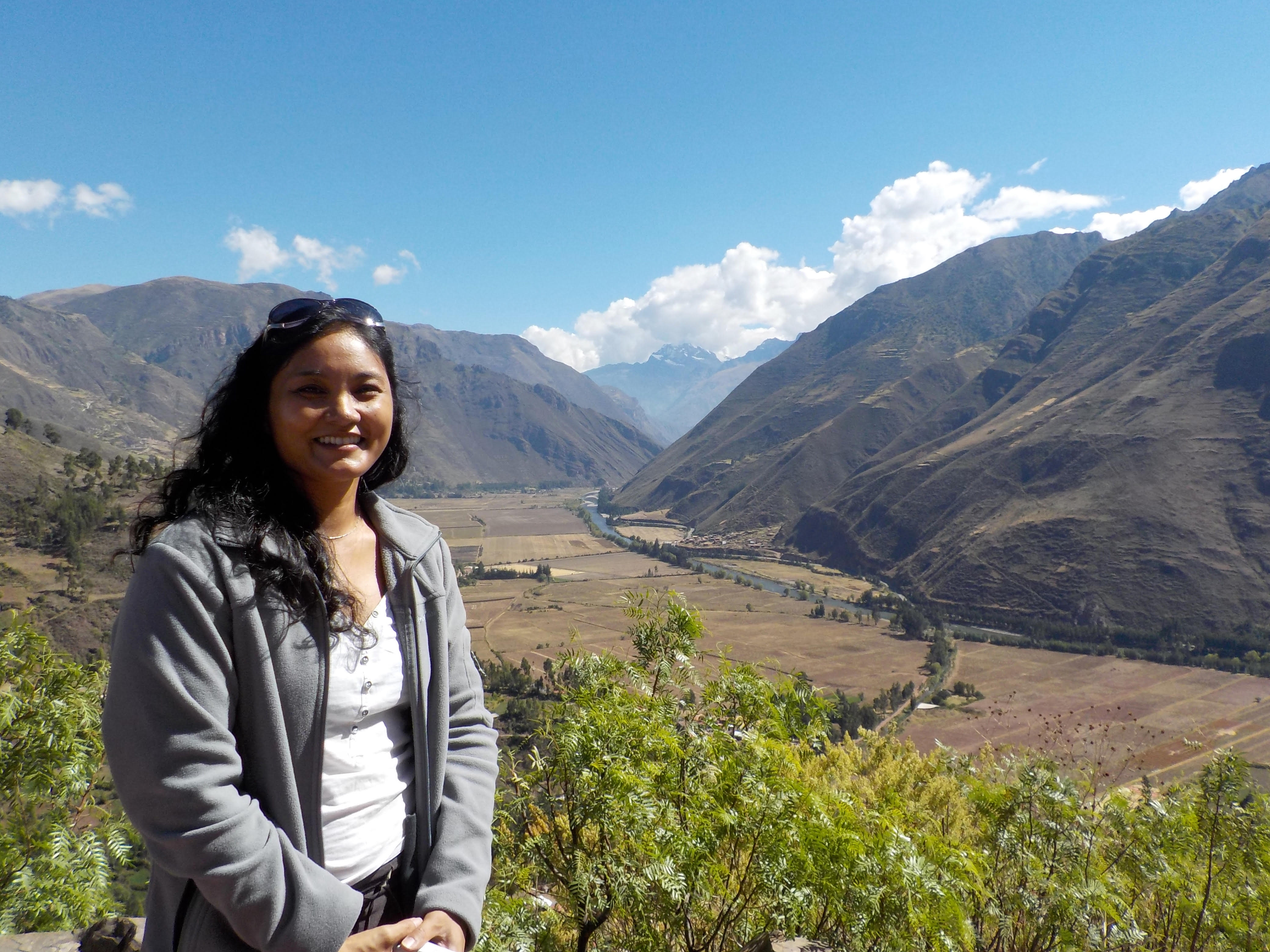Tropical living can seem like paradise. For residents of the island of Guam, the great views and wonderful weather come with a price: near total dependence on imported foods to support its growing population. Ensuring the safety of those imports is a full-time job, and that’s why Andrea Blas is serious about plant diseases.
Blas (’98, Biology) is a professor at the University of Guam, where she studies diseases that infect both imported and locally-grown crops. She’s also the university’s first female plant pathologist and is dedicated to helping the island develop more sustainable agricultural practices.
Since World War II, Guam’s population has grown from around 22,000 people to more than 160,000 today. With the arrival of the U.S. military, the economy has transformed from a predominantly agriculture-based economy of farmers and ranchers to a cash-based economy centered on tourism and the U.S. military. Now as the remaining farmers near retirement age, Blas says there’s a renewed interest in boosting local food production.
But it’s not just the shifting economy impacting the food production on the island. The tropical climate poses its own threat. “On the mainland, the pests and pathogens have a winter die off,” Blas says. “On the island, we don’t have winter so the pathogens go year round. And any time you get a tropical storm or typhoon the spores and insects just go all over the place.”
The papaya is among the disease-afflicted crops and Blas is focusing some of her research on ways to increase the crops’ resistance. Blas and other researchers had noticed papaya trees that grew alongside volunteer banana trees were hearty and strong, while papaya trees growing on their own were dying off. “I think what’s going on is that the insect vectors that transmit a lot of the papaya diseases don’t like bananas. So maybe with this kind of intercropping, we could get papaya production without any pesticides or insecticides,” says Blas.
Experiences like this have sparked Blas’s interest in sustainable agriculture and last year she helped develop the university’s new Sustainable Agriculture, Food & Nutrition master’s program. For students who are seeking careers in the sciences, Blas offers straightforward advice: “Fall in love with learning and get broad experience.”

